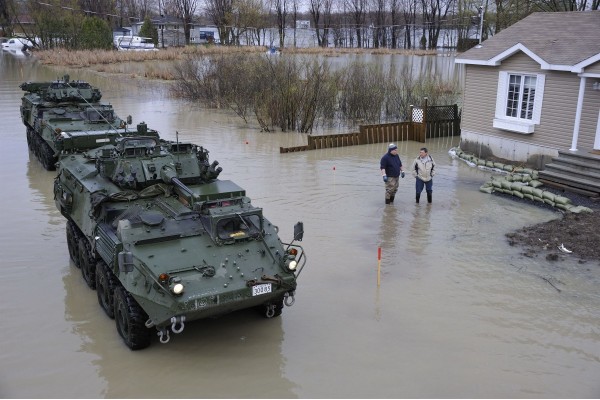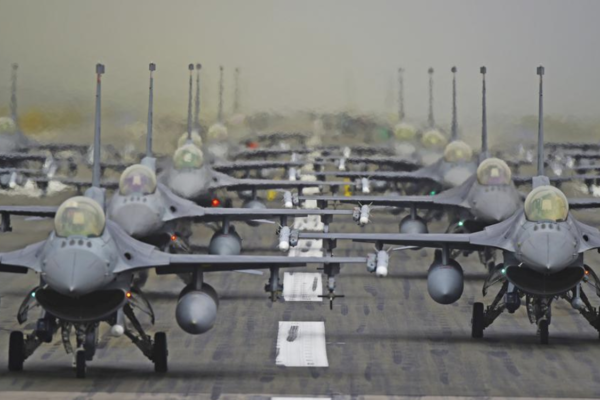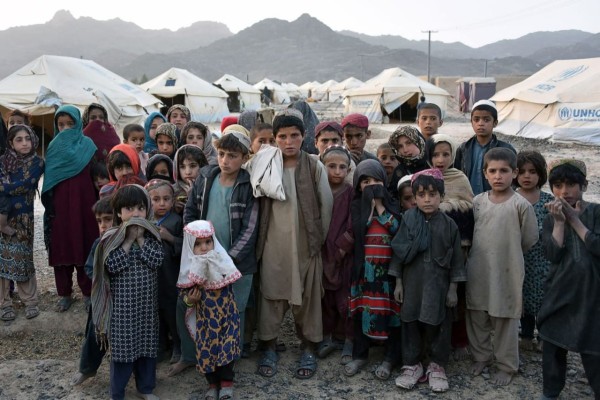Conflict with China is the nemesis of climate change action
Any US president who talks about combatting climate change while not making a lasting peace with China is a hypocrite

Members of a Chinese military honour guard march during a welcome ceremony for the Chairman of the Joint Chiefs of Staff, Marine General Peter Pace, at the Ministry of Defense in Beijing, 2007. Photo from Wikimedia Commons.
China looks across the world toward Russia and sees its future, an inevitable conflict between it and the West, most probably through what will start as a proxy war over Taiwan. That the People’s Liberation Army will quickly overwhelm Taiwanese defences (population 23.5 million, with one million living in mainland China) is not open to question, unless one is delusional. As with Ukraine, the West has been a significant instigator of Taiwan’s formal independence movement, and as with Russia the West can be expected to attempt to economically destroy China if it acts to reunify the island with the mainland—with the US since the 1950s acting to stop such a reunification.
The military commands of the Western nations should be fully aware of the losing proposition of a direct confrontation with China, with the result being a Chinese victory and US bases in the region turned into smoking ruins. After the debacle and blowback of the Russian sanctions, it would be hoped that Western economic and political elites also understand the losing proposition of an economic war. Unfortunately, given the level of delusion and bravado shown by Western elites during the current Ukraine crisis, nothing can be taken for granted.
In an economic war the greatest exposure of the Chinese economy will be through its vast oil imports, over 10 million barrels per day (in addition to its domestic production of four million barrels per day). Its main power source, coal, can be supplied from China’s still huge domestic deposits and from its overland neighbours, especially Russia. The same is becoming increasingly so for natural gas, as the pipeline network to Russia and Central Asia is expanded; with the Power of Siberia 2 pipeline scheduled to start delivering gas around 2025. China has also had some success in boosting domestic gas production through the exploitation of unconventional deposits. It also receives gas from Russia via LNG tankers, but the continuation of this supply during a war or sanctions may not be viable. All nuclear and renewable energy electricity production also count as domestic sources of energy.
With the low utilization of the Chinese coal-fired electricity generating fleet, coal-burning could be significantly expanded to both replace any remaining ship-born natural gas imports and to increase the electricity supply if required. Moreover, coal stands at the core of Chinese energy security. China also has an extensive network of electrified public transport, with inter-city trains, local trains, subways and trams, and electrified buses and taxis. With the network of high-speed trains and limited and congested domestic non-military airspace, China is many times less dependent on domestic air carriers than the US. In addition, an increasing percentage of new cars sold are either fully electric or of a hybrid variety, providing an additional electrified transport resource. In a military emergency or energy blockade, internal combustion engine (ICE) personal transport could be nearly completely curtailed given the electrified options available. Together with a cessation of oil product exports (including plastics), the usage of alternative fuels in the commercial vehicle fleet (e.g. coal derived methanol), and China’s sizeable strategic oil reserve, an energy blockade could be endured for years. Over such a time period, new overland supplies of oil through additional pipelines and trains could also be established.
The strange conclusion that can be drawn from the above is that China’s domestic fossil fuel production, plus overland fossil fuel supplies work together with its expanding nuclear and renewables electricity production capacity to act as the core of China’s energy security. The increasing electrification of personal vehicle transport, and smaller vehicle commercial transport, serves to reinforce the importance of coal (and the maintenance of low coal-fired power station utilization rates). During a crisis, a switch from ICE to a greater utilization of electrified transport would be required to reduce oil import dependency. The state policies that would be expected from this, given the increasingly conflictual nature of the relationship with the West, would be a continuation and modernization of coal extraction (together with the maintenance of a coal-fired electricity generation low utilization “strategic reserve”), a continuation of the growth in domestic natural gas production, more overland fossil fuel supplies from neighbouring nations, continued rapid expansion of nuclear and renewable energy production, a drive to rapidly expand the EV fleet, and continued expansion of electrified public transport. All of these policies are being followed by the Chinese state, any reduction in fossil fuels will be through a reduction in the usage of oil, not coal and natural gas. One of the most intriguing possibilities would be the completion of a natural gas (and possibly oil) pipeline between Iran and China.
As with the Ukraine crisis, the vast majority of the world’s population can be expected not to fall for the Western propaganda that will be used to paint China as a threat to world peace, and will rather see China’s actions as dealing with an unresolved domestic issue—one that has been kept unresolved since the 1950s by the actions of the US to forestall the reunification of the mainland and Taiwan. The Association of Southeast Asian Nations (ASEAN) countries can be expected to remain neutral and continue trading with China, and the oil and other raw material exporting nations would also be expected to take the same position; the alternative would be economic ruin. The vassal states of South Korea, Japan, and Australia may be dragged into a war with China, but that would produce both economic ruin and possible physical devastation.
If the West truly jumped the shark and went for “Chinese sanctions from hell,” they would rapidly understand their reliance on Chinese suppliers (including the Taiwan Semiconductor Manufacturing Company, the world’s most valuable semiconductor company) and also find themselves cut off from the rest of the world. Any attempt at an energy blockade would also rapidly crash the price of oil, while also deeply cutting the exports of many of the MENA (Middle East and North Africa) producing nations. Any attempts at secondary sanctions (e.g. of ASEAN goods containing Chinese-made components) would bring the West into conflict with the rest of the world. It would appear that China could easily withstand any sanctions regime longer than the West could, as we are finding out with respect to the sanction regime against Russia, with domestic coal production being the backbone of that ability.
The greater level of conflict between the West and China, the more important that backbone of Chinese domestic coal production becomes. Any US president who talks about combatting climate change while not making a lasting peace with China is a hypocrite. Such a peace could also lead to a significant reduction in the national militaries that burn through massive amounts of fossil fuels themselves. Peace is good for climate change action. War—even the threat of it—is its nemesis.
Roger Boyd is a Fellow at the Balsillie School of International Affairs. Prior to completing his doctoral studies he spent 25 years as an executive in the financial industry, and authoured a book exploring the links between the energy and financial systems. The views expressed in this article are those of the author and do not necessarily represent those of the Balsillie School.










